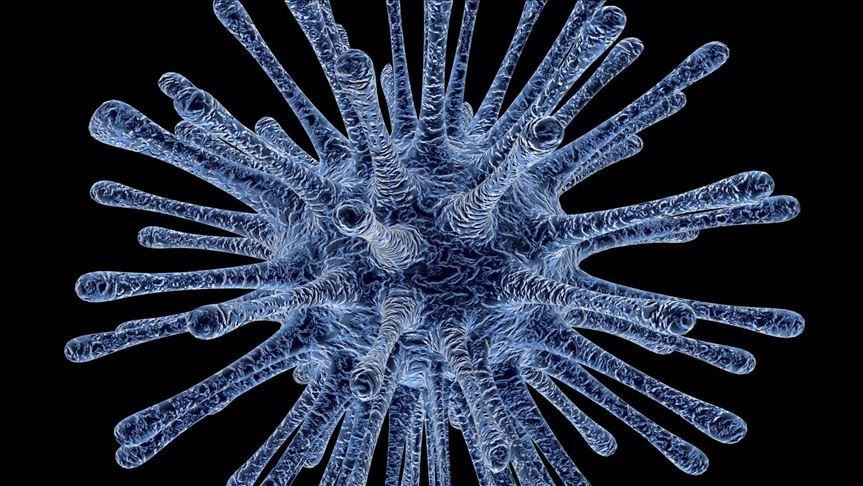Coronavirus
Coronavirus Spread Around The World In Late 2019-Study

(Reuters) – A genetic analysis of samples from more than 7,500 people infected with COVID-19 suggests the new coronavirus spread quickly around the world late last year and is adapting to its human hosts, scientists said on Wednesday.
A study by scientists at University College London’s (UCL) Genetics Institute found almost 200 recurrent genetic mutations of the new coronavirus – SARS-CoV-2 – which the researchers said showed how it may be evolving as it spreads in people.
Francois Balloux, a UCL professor who co-led the research, said results showed that a large proportion of the global genetic diversity of the virus causing COVID-19 was found in all of the hardest-hit countries.
That suggests that the virus was already being transmitted extensively around the globe from early on in the epidemic.
“All viruses naturally mutate. Mutations in themselves are not a bad thing and there is nothing to suggest SARS-CoV-2 is mutating faster or slower than expected,” said Balloux. “So far, we cannot say whether SARS-CoV-2 is becoming more or less lethal and contagious.”
In a second study also published on Wednesday, scientists at Britain’s University of Glasgow who also analysed SARS-CoV-2 virus samples said their findings showed that previous work suggesting there were two different strains was inaccurate.
A preliminary study by Chinese scientists in March had suggested there may have been two strains of the new coronavirus causing infections there, with more of them more “aggressive” than the other.
But publishing their analysis in the journal Virus Evolution, the Glasgow team said only one type of the virus was circulating.
More than 3.68 million people have been reported to be infected by the novel coronavirus globally and 256,000 have died, according to a Reuters tally. Infections have been reported in more than 210 countries and territories since cases were first identified in China in December 2019.
The UCL team’s findings, published in the journal Infection, Genetics and Evolution, confirm that the virus emerged in late 2019, Balloux said, before quickly spreading across the globe.
His team screened the genomes of more than 7,500 viruses from infected patients around the world. Their results add to a growing body of evidence that SARS-CoV-2 viruses share a common ancestor from late 2019, suggesting this was when the virus jumped from a previous animal host into people.
This means it is unlikely the new virus was circulating in people for long before it was first detected, Balloux said.
A study by French scientists published earlier this week found a man there was infected with COVID-19 as early as Dec. 27, nearly a month before France confirmed its first cases.
The World Health Organization said the French case was “not surprising” and urged countries to investigate any other early suspicious cases.
Balloux said the 198 small genetic changes, or mutations, that his and other studies have identified held helpful clues for researchers seeking to develop drugs and vaccines.
“If we focus our efforts on parts of the virus that are less likely to mutate, we have a better chance of developing drugs that will be effective in the long run,” Balloux said.
Kenya Insights allows guest blogging, if you want to be published on Kenya’s most authoritative and accurate blog, have an expose, news TIPS, story angles, human interest stories, drop us an email on [email protected] or via Telegram
-

 Business2 weeks ago
Business2 weeks agobetPawa Empire Crumbles: Mr Eazi’s Betting Gambit Unravels Amid Partner’s Shadowy Deals
-

 Business1 week ago
Business1 week agoMinnesota Fraud, Rice Saga, Medical Equipment Deal: Why BBS Mall Owner Abdiweli Hassan is Becoming The Face of Controversial Somali Businessman in Nairobi
-

 News1 week ago
News1 week agoDCI Probes Meridian Equator Hospital After Botched Procedure That Killed a Lawyer
-

 Politics1 week ago
Politics1 week agoYour Excellency! How Ida’s New Job Title From Ruto’s Envoy Job Is Likely to Impact Luo Politics Post Raila
-

 Business1 day ago
Business1 day agoCooking Fuel Firm Koko Collapses After Govt Blocks Sh23bn Carbon Deal
-

 Investigations2 weeks ago
Investigations2 weeks agoEXPOSED: SHA Officials Approve Higher Payments for Family, Friends as Poor Patients Pay Out of Pocket
-

 News1 week ago
News1 week agoKenya Stares At Health Catastrophe As US Abandons WHO, Threatens Billions In Disease Fighting Programmes
-

 Politics2 weeks ago
Politics2 weeks agoJaramogi Clan Tells Raila Jr, Winnie Against Disrespecting Their Uncle Oburu, Warns of Curses















